The longest book in the Bible is Psalms, with 150 chapters and 2,461 verses.
Did you know that the longest book in the Bible is not just a collection of songs, but an emotional, spiritual, and prophetic guide for every believer?
We often overlook the richness of the longest book of Scripture, but by understanding its structure, depth, and purpose, we discover that every verse is designed to transform the heart and renew the mind.
In this article, we'll explore why its length is not a coincidence, but a reflection of its eternal value.
Introduction to the longest book of the Bible
What is the longest book in the entire Bible and why?
The Bible contains multiple books with different purposes, genres and lengths.
However, one of them stands out for being the longest, not only in number of chapters and verses, but also in spiritual impact and devotional use throughout the centuries.
This is a book that has touched hearts, guided prayers, and given words to the silences of the soul.
It's not just about length: it's about purpose, poetry, and spiritual power
The longest book in the Bible is not simply a long collection of texts.
Every chapter, every line, has been carefully inspired to express deep human emotions and eternal truths.
This book has the ability to:
- Connecting personal experience with divine revelation
- Take us from anguish to joy
- Teach us to worship in every season of life
His poetry is more than literary beauty: it is a channel of spiritual transformation.
Why knowing this book transforms your Bible reading
Reading and studying this book carefully has the power to renew your relationship with Scripture.
It offers a model of honest prayer, passionate worship, and radical trust in God.
Besides:
- It trains us to recognize the spiritual language that runs throughout the Bible
- It shows us how to express faith in words when the soul finds no voice.
- It allows us to experience God with the mind and heart
To know this book is to open the door to a deeper, richer, and more authentic spirituality.
What is the longest book in the Bible?
Direct Answer: The Book of Psalms
The longest book in the entire Bible is the book of Psalms.
Composed of 150 chapters, it is a compilation of songs, prayers, supplications, and praises inspired by God throughout different generations.
It's not just the book with more chapters and verses, but also one of the richest in spiritual, emotional and doctrinal content.
Psalms have been an inexhaustible source of comfort, worship, and teaching for millions of believers throughout history.
Its length is accompanied by depth, structure and literary variety.
How is the length of a biblical book measured? (verses, chapters, words)
The length of a biblical book can be measured from several perspectives, each offering a different way of understanding its size and importance:
- By number of chapters: Psalms is the book with the most chapters (150).
- By number of verses: He also leads, with a total of 2,461 verses.
- By word count: Although Psalms is extensive, some books like Jeremiah They have more words in their original language (Hebrew), which is also considered a valid form of measurement.
- By reading time: At a moderate pace, Psalms can take between 4 to 6 hours to be read in full.
These combined metrics make Psalms generally considered the longest book in the Bible.
Comparison with other long books such as Isaiah, Genesis or Jeremiah
Although Psalms ranks first in chapter length, there are other books that are also extensive in content and structure.
Below is a comparison of the main ones:
- Jeremiah: It has 52 chapters and is considered the most wordy book in Hebrew. Its content is highly prophetic and dense.
- Genesis: It contains 50 chapters and marks the beginning of the biblical narrative. It is essential for understanding the origins of God's people.
- Isaiah: With 66 chapters, it is one of the most influential prophetic books of the Old Testament. It combines judgment, hope, and messianic promises.
Psalms
Chapters: 150
Verses: 2,461
Approximate words (Hebrew): ~43,000
Jeremiahs
Chapters: 52
Verses: 1,364
Approximate words (Hebrew): ~42,000
Genesis
Chapters: 50
Verses: 1,533
Approximate words (Hebrew): ~38,000
Isaiah
Chapters: 66
Verses: 1,292
Approximate words (Hebrew): ~37,000
Although each stands out for different reasons, Psalms remains the most important book longer in structure and one of the most used for worship and spiritual study.
What does the book of Psalms contain?
A collection of 150 sacred compositions
The book of Psalms is composed of 150 chapters, each with a specific spiritual purpose.
This is an anthology of hymns, prayers, songs, and reflections inspired by God, used in both personal and communal worship.
These psalms were written over several centuries, compiled under divine direction and organized into a structure that reflects both the experience of the people of Israel and eternal truths about God.
Diversity of authors: David, Asaph, sons of Korah and others
Although the king David He is the best-known author of the Psalms, but he was not the only one.
Several composers and priestly families participated in the creation of these texts:
- David: Author of at least 73 recognized psalms (possibly more).
- Asaph: Levite leader appointed by David; wrote at least 12 psalms.
- Sons of Korah: Levitical family that composed at least 11 psalms.
- Ethan, Heman, Moses and Solomon: Other authors mentioned in the titles of some psalms.
This plurality of authorship demonstrates that the Psalms represent a collective experience of God's people, beyond a single voice.
Variety of genres: praise, lament, thanksgiving, penance
The Psalms encompass a diversity of literary genres that reflect the different moments of the human soul before God:
- Psalms of praise: They exalt the greatness, power and mercy of the Lord.
- Psalms of Lament: They cry out to God in the midst of pain, oppression or abandonment.
- Psalms of Thanksgiving: They are grateful for divine deliverance, provision, or response.
- Penitential Psalms: They express deep regret for sin.
- Royal Psalms: They celebrate the reign of God or the promised Messiah.
- Psalms of wisdom: They instruct the reader in the fear of the Lord and justice.
Each type of psalm fulfills a spiritual function that strengthens the believer's relationship with God.
Why is the longest book in the Bible important?
A bridge between human experience and divine worship
The book of Psalms serves as a link between human emotions and the majesty of God.
His words allow us to express joy, sadness, gratitude, fear, hope and trust with complete honesty before the Creator.
The Psalms validate crying, celebration, doubt, and faith as part of the spiritual journey.
They become a guide for praying, singing, and meditating in a biblically profound way.
Inspired words for every human emotion
One of the greatest treasures of this book is that No matter what you're going through, there's a psalm that connects with you..
The psalmists teach us to speak to God when:
- We feel alone or persecuted
- We celebrate a victory
- We face enemies
- We regret our mistakes
- We want to praise with all our hearts
This book gives language to every corner of the human soul.
The book most cited by Jesus and the apostles
In the New Testament, The Psalms are the Old Testament book most quoted by Jesus.
Throughout his ministry, he cited key phrases to teach, confront, and comfort.
Significant examples:
- On the cross, Jesus cried out: “My God, my God, why have you forsaken me?” (Psalm 22:1).
- In his teaching, he quoted psalms to speak of his messianic identity and the Kingdom of God.
- The apostles used the psalms to show that Jesus fulfilled ancient prophecies.
This proves that the longest book in the Bible It is also one of the most central to understanding the Gospel message.
Structure of the Book of Psalms
Division into five internal books (Psalms 1–41, 42–72, etc.)
The book of Psalms is not a haphazard collection of songs.
It is carefully structured in five sections or “internal books”, which some scholars consider a parallel with the five books of the Pentateuch:
- Book I: Psalms 1 to 41
- Book II: Psalms 42-72
- Book III: Psalms 73-89
- Book IV: Psalms 90-106
- Book V: Psalms 107 to 150
Each of these sections reflects a particular tone and emphasis.
The progressive structure leads the reader from suffering and supplication to full praise and exaltation of God's reign.
Inclusion of doxologies at the end of each section
A notable feature of each of the five books of Psalms is that They end with a doxology, that is, a brief expression of praise to God.
Examples of these doxologies:
- “Blessed be the Lord, the God of Israel, forever and ever. Amen and amen.” (Psalm 41:13)
- “Blessed be the Lord God, the God of Israel, who alone does wonders.” (Psalm 72:18)
These phrases not only mark the conclusion of each section, but also direct the reader's attention back to worship and gratitude.
General introduction (Psalm 1) and masterful closing (Psalm 150)
He Psalm 1 It acts as a prologue, establishing the contrast between the righteous and the wicked, and highlighting the importance of meditating on the Word of God.
This psalm frames the purpose of the book: a life anchored in divine instruction.
He Psalm 150, on the other hand, works as a glorious closure.
It is a universal call to praise, using all kinds of instruments, voices and expressions to glorify God.
With its six verses, it marks the climax of the entire book: “Let everything that has breath praise the Lord.”
The longest and the shortest Psalm
Psalm 119: The Longest Chapter in the Entire Bible
He Psalm 119 It is the longest chapter in the entire Bible, with 176 verses.
It is an acrostic poem based on the Hebrew alphabet: every eight verses begin with the same letter, following the complete alphabetical order.
This psalm revolves around a single central theme: love and reverence for the Word of God.
Words like law, commandment, statute, precept, way, and word appear again and again to exalt divine instruction.
Key themes of Psalm 119:
- Constant meditation on the Word
- Obedience as a path to blessing
- Spiritual strength in the face of persecution
- The Word as light and guide
Psalm 117: The shortest and most praise-focused chapter
He Psalm 117 It is the shortest chapter in the Bible: only 2 verses.
Despite its brevity, it contains a universal message:
- Calls all nations to praise God
- Highlights his mercy and faithfulness
- Summarizes the purpose of all humanity: to glorify God
This psalm shows that depth does not always depend on the number of words.
What key lessons do these two extremes offer?
Both psalms, the longer and the shorter, have something important in common: They put God and His Word at the center.
- Psalm 119 leads us into a deep and prolonged contemplation of the transformative power of Scripture.
- Psalm 117 reminds us that the praise is universal, accessible and brief, but with an eternal meaning.
These extremes summarize the heart of the book of Psalms: a life centered on God, expressed in both detail and essence.
Recurring themes in the Psalms
Trust in God in the midst of adversity
One of the most powerful and frequent themes in the Psalms is the trust in God despite trials.
Many psalms were written from contexts of persecution, distress, illness, war, or betrayal.
However, each of them declares that God is refuge, shield, rock, salvation and strength.
These texts teach that true faith does not depend on circumstances, but on who God is.
Expressions like “I will trust in you” either “I will not fear” They appear again and again, reminding the reader that suffering is not the end of the story, but the place where trust deepens.
Divine sovereignty over nations
Many psalms proclaim that God is King over all the earth, not just about Israel.
This theme appears especially in the royal and messianic psalms, which announce the universal dominion of God and the coming of his Anointed One.
Phrases like “The Lord reigns”, “The nations will tremble before Him”, and “Proclaim his glory among the nations” They show a global and eternal vision of the divine reign.
The Psalms anticipate the redemption not only of a people, but of all nations under one Lord.
The importance of obedience and meditation on the Word
The psalmists constantly insist on the blessing that comes from living according to God's will.
Obedience is not seen as an act of obligation, but as a source of wisdom, stability and joy.
Psalm 1 introduces this theme forcefully:
“Blessed is the man who does not walk in the counsel of the ungodly… but his delight is in the law of the Lord.”.
Psalm 119 then expands on this, showing that Meditating on the Word is vital to living with integrity.
Obeying God in the Psalms is equivalent to walking in the light, being firmly planted, and living with purpose.
David: the most prolific author of the book
How many psalms did David actually write?
King David is traditionally considered the principal author of the book of Psalms.
73 psalms are attributed to him directly by title, although some scholars believe he may have written more.
These psalms cover all genres: praise, lament, gratitude, supplication and worship.
David's authorship provides not only content, but a deep emotional connection between his experiences and the inspired words.
The relationship between his personal experiences and his psalms
Many of David's psalms are marked by specific moments in his life:
- His flight from Saul (Psalm 59)
- His sin with Bathsheba and his repentance (Psalm 51)
- His victory over Goliath and other enemies (Psalm 18)
- His time in the desert or hidden in caves (Psalms 57, 142)
These writings are not theoretical, but sincere responses to real situations.
David shows that a heart after God's will is not perfect, but deeply dependent on and sensitive to the Holy Spirit.
Why is he called “the sweet singer of Israel”
In 2 Samuel 23:1, David is described as “the sweet singer of Israel”.
This title reflects both his musical ability and the prophetic anointing with which he composed.
David didn't just write songs: He created hymns that connected people to God, and which are still sung, read and memorized by millions today.
His psalms reveal a heart that worshipped God in victory and defeat, in the cave and on the throne, in brokenness and in hope.
Therefore, it remains the most beloved and relevant author of the longest book in the Bible.
How have the Psalms influenced Christian history?
Use in Jewish and Christian liturgies
Since ancient times, the Psalms have occupied a central place in the liturgical life of the people of God.
In tradition bean, many psalms were recited during festivals such as Passover, Sukkot or the Sabbath.
He Hallel (Psalms 113–118) was sung as part of temple worship and sacrifices.
In the Early Christian Church, the Psalms were adopted as a fundamental part of daily worship.
Many were recited in morning and evening prayers, and formed part of the spiritual “hymnal” of early believers.
Until today, both in liturgical churches (such as Catholic, Orthodox or Anglican) as in many evangelical churches, the Psalms continue to be read and sung regularly in meetings, masses and worship services.
Prayer, song and meditation throughout the centuries
The Psalms have been used for centuries as a model for personal prayer and praise.
Historical figures such as Saint Augustine, Martin Luther either John Calvin They recommended meditating on them daily to cultivate an intimate relationship with God.
Many Christians pray the Psalms as a response to different situations:
- For comfort in the midst of suffering (Psalm 23)
- To express gratitude (Psalm 100)
- To seek forgiveness (Psalm 51)
- To face fear (Psalm 27)
In addition, during moments of persecution or illness, believers have found in the Psalms a way to keep their faith alive.
Translations, hymnals and musical versions
The cultural impact of the Psalms is incalculable.
They have been translated into thousands of languages and have inspired entire hymnals, especially in movements such as the Protestant Reformation.
Musical versions of the Psalms have been composed by classical artists such as Handel, Bach, Mozart, and by modern psalmists in contemporary contexts.
From chorales to contemporary worship, the Psalms remain a living source of spiritual musical expression.
There are also metrical versions of the Psalms adapted for singing in Reformed churches, preserving the biblical content with a poetic structure for congregational singing.
How to study the longest book of the Bible in depth
Daily devotional reading (psalm of the day)
One of the most practical and effective ways to study the book of Psalms is through a daily devotional reading.
Read a psalm every day allows:
- Become familiar with different styles and themes
- Cultivate a constant spiritual discipline
- Memorize key passages that strengthen faith
Many believers use this routine along with prayer and spiritual journaling, noting what the text reveals to them.
Thematic study by type of psalm
Another enriching way to delve deeper into the Psalms is to do a study thematic, grouping the psalms by their type or purpose:
- Psalms of praise (Psalm 8, 29, 145)
- Psalms of Lament (Psalm 13, 22, 88)
- Psalms of Thanksgiving (Psalm 30:116)
- Penitential Psalms (Psalm 32, 51, 130)
- Royal and Messianic Psalms (Psalm 2:110)
- Psalms of Wisdom (Psalm 1, 37, 119)
This allows for comparisons of tones, structures, and teachings between similar psalms, facilitating a richer understanding of the content.
Use of digital tools and biblical commentaries
In the digital age, there are many resources that help you delve deeper into your study of the Psalms.
Some useful tools are:
- Logos Bible Software either Blue Letter Bible: allow for studies in the original Hebrew, lexical analysis and thematic research.
- BibleProject: offers videos and visual summaries of the themes and structure of the Psalms.
- YouVersion or Bible.com: include devotional reading plans focused on the Psalms.
In addition, it is recommended to consult recognized biblical commentaries as:
- Matthew Henry Bible Commentary
- Commentary on the Hebrew text of the Psalms by Franz Delitzsch
- Holman Concise Bible Commentary
These resources will help you see historical, contextual, and theological connections that enrich your understanding of the longest book in the Bible.
Book recommendations for further study
📘 “Psalms: Poetry and Prayer of God’s People” – Tremper Longman III
An in-depth analysis of the literary and theological context of the Psalms, ideal for personal and pastoral study.
📙 “The Power of the Psalms” – C.S. Lewis
A classic work in which the author reflects on how the Psalms have shaped his Christian faith and thought, with intellectual clarity and sincere devotion.
📗 “Psalms: A Biblical Commentary on the Hispanic World” – Samuel Pagán
Exegetical and contextual commentary from a Latin American perspective, ideal for preachers and serious Bible students.
This is only for Christian entrepreneurs committed to their faith.
The longest book in the Bible not only speaks to the heart, it also inspires those who lead with values.
If your company reflects integrity, excellence and service, this section is for you:
🚀 Launch your website with excellence and purpose.
Visit NippyLaunch.com, a platform designed for Christian entrepreneurs looking for professional tools without compromising their principles.
📈 Grow your business with clean strategies.
Explore CleefCompany.com, where we apply digital marketing with biblical principles and real results.
🧮 Make wise decisions with reliable tools.
Enter to CalculatorCCH.com and use over 600 free calculators for your business, health, and personal finances.
Frequently Asked Questions About the Longest Book of the Bible
What is the longest book in the Bible by chapters and verses?
The longest book in the Bible is Psalms, with 150 chapters and 2,461 verses.
Although other books like Jeremiah have more Hebrew words, in structure and chapter length, Psalms is the longest.
How long would it take to read it all?
At an average reading pace, it would take between 4 and 6 hours read it all at once.
However, many believers read it in daily sessions, devoting one psalm per day for study and meditation.
Why are the Psalms so varied in content?
Because they were written by different authors over several centuries.
The Psalms reflect a wide range of human emotions and spiritual situations, from the most exalted praise to the most desperate plea.
They are an authentic expression of life with God in all its nuances.
Who were its main authors?
- David: author of at least 73 psalms.
- Asaph, sons of Korah, Ethan, Heman, Moses and Solomon: authors of other psalms.
- Several psalms do not have a specified author, but all were considered inspired by the people of Israel.
What type of psalm is most common: lament, praise, or teaching?
The psalms of lament They are the most numerous, reflecting that many times the people of God came to Him in times of need.
They are followed by psalms of praise and the didactic or wisdom psalms, which instruct the believer.
What role do the Psalms play in devotional life?
They are a guide to prayer, worship, and reflection.
They allow us to express the deepest feelings of our souls in biblical words and help us connect with God in a sincere and personal way.
Are they still used in worship today?
Yes, constantly.
The Psalms are used in:
- Traditional Christian liturgies (Catholic, Orthodox, Anglican)
- Hymnals and contemporary worship songs
- Congregational readings and daily devotionals
How can I memorize psalms easily?
- Start with short and repetitive psalms, such as Psalm 23 or Psalm 121.
- Read them aloud several times a day.
- Write them by hand.
- Use music or rhythm to help you remember them.
- Use flashcards with key parts.
What is the most quoted psalm in the New Testament?
He Psalm 110 is the most cited.
Contains the famous phrase: “Sit at my right hand until I make your enemies your footstool.”, a direct messianic reference to Jesus.
Why did Jesus quote the Psalms frequently?
Because the Psalms expressed the heart of his relationship with the Father.
Also, Jesus He used the Psalms to teach, confront, and prophesy, since many psalms contain direct references to his life, suffering, death and resurrection.
On the cross, his last words were from a psalm (Psalm 22).
Conclusion
The longest book in the Bible impresses not only with its size, but also with the breadth of emotions, teachings, and revelations it offers.
From the depths of sorrow to the heights of praise, the Psalms teach us to live a faith that is honest, courageous, and deeply rooted in the Word.
Now tell us:
Is there a psalm that has marked your life or that you repeat in difficult times?
Leave it in the comments and share with others what God has done for you.
Discover How the Bible Can Transform Your Life
- Bible Study – explore the teachings of the Bible and find answers to life’s challenges.
- Fundamental Beliefs – delves into the principles that have guided millions through the centuries.
- Spiritual Growth – Strengthen your faith with studies designed to bring you closer to God.

Discover How the Bible Can Transform Your Life
- Bible Study – explore the teachings of the Bible and find answers to life’s challenges.
- Fundamental Beliefs – delves into the principles that have guided millions through the centuries.
- Spiritual Growth – Strengthen your faith with studies designed to bring you closer to God.






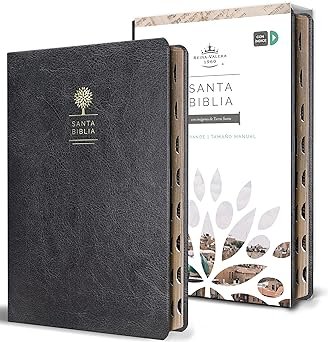








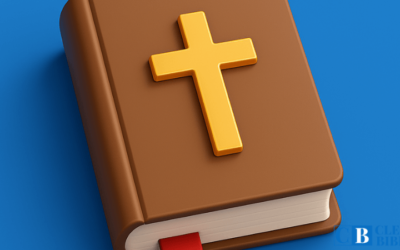


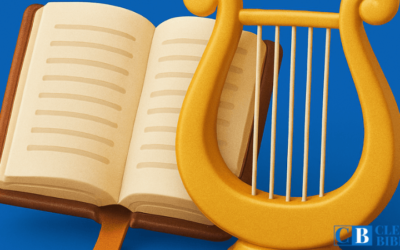





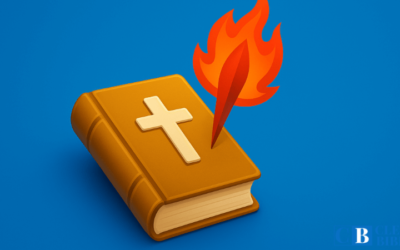
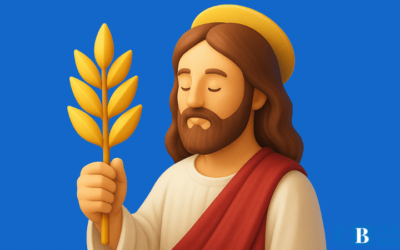

0 Comments